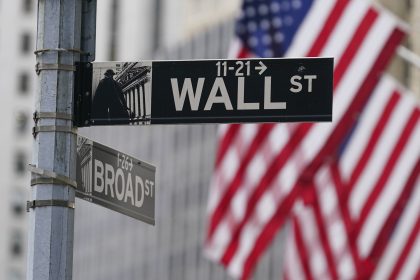Blockchain Could Move Cryptocurrency to Pivotal Place in Economies

Cryptocurrencies have the potential to decentralize systems of commerce across the world, leading to vast peer-to-peer markets absent of manipulation.
In order for this to come to fruition, Sheila Warren, head of data, blockchain and digital assets and member of the executive committee at the World Economic Forum said blockchain technology needs to be embraced on a widespread scale.
Warren took part in a virtual webinar presented by the Center on Regulation and Markets at the Brookings Institution on Thursday. The webinar was hosted and moderated by the center’s director, Sanjay Patnaik, with members of the media present.
Blockchain is a form of modification resistant electronically distributed ledger technology, Warren said. Each “block” in a chain contains complicated algorithms along with timestamps and transaction data to produce unalterable records of commerce in a database.
As changes are made to the electronic ledgers within the database, those changes are recorded chronologically in a new block added to the chain. No single actor in a transaction has centralized control over the data, meaning all actors collectively retain control of the information.
During the event, Warren explained that cryptocurrency is useful for removing intermediary agencies — such as banks and payment applications — from instances of peer-to-peer transactions. The advantage cryptocurrency presents is the substitution of one’s trust in these centralized networks in favor of a “distributed network.”
Blockchain technology makes transactions more efficient by eliminating middlemen from the equation, she said. This is the case for both financial institutions and regulatory bodies.
“The other thing that’s interesting is that the record is public,” Warren said. “So, if let’s say you have parties that don’t really trust each other. What you want to have is the ability for everyone to know that what they’re seeing is essentially the same record. And using this kind of system, you don’t have to rely on a centralized authority to … show things to people.”
These transactions can validate one’s proof of stake automatically based on the amount of cryptocurrency they hold. By duplicating this data across multiple computers or nodes on the network, the blockchain can transparently verify the legitimacy of the transactions in each block.
This new system of electronically distributed ledgers holds significant implications for intermediary agencies built on traditional systems of commerce, Warren said. Some agencies are already taking action to create tangible forms of transactions utilizing cryptocurrencies, such as PayPal’s announcement in October 2020 that it would add cryptocurrency buying to its wallet or Tesla’s purchasing of $1.5 billion worth of bitcoin last month.
Central bank digital currency uses blockchain-based tokens to represent fiat currency backed by the monetary authority of a country or region. CBDC differs from cryptocurrency in that it is centralized; it digitally represents an official currency, whereas cryptocurrencies like Bitcoin have “their own intrinsic value,” Warren said.
“I think that’s a fascinating part because it can create completely new markets,” Patnaik said. “Markets for products, needs and populations that we didn’t even know we needed. It’s very similar to artificial intelligence, I think in that regard. It’s very hard for the public, for consumers and also for regulators to anticipate what is coming over the next two years.”
But the trust the market has for cryptocurrency might be seen as alarming for stakeholders of financial institutions, Warren said. Regulation lags innovation, and some worry that political actors with vague understandings of the technology could create institutional changes to the system.
Although the technology behind the concept is complex, its underpinnings are clear: blockchains guarantee a transaction’s transparency. Cryptocurrency’s popularity among consumers and producers alike could represent a shift in public trust away from financial institutions and towards more decentralized systems of commerce in the future.
“That’s part of why the (World Economic Forum) opened our office in San Francisco, was focusing specifically on this question of tech governance and how do we kind of create more agile methods of governance of technologies that could be more real-time,” Warren said. “That could kind of make sure that we’re not suddenly killing an industry that’s really doing well with some regulation that nobody could foresee has bigger consequences than it was meant to have. But at the same time, being safe, trying to ensure that there is safety built into the process there.”























